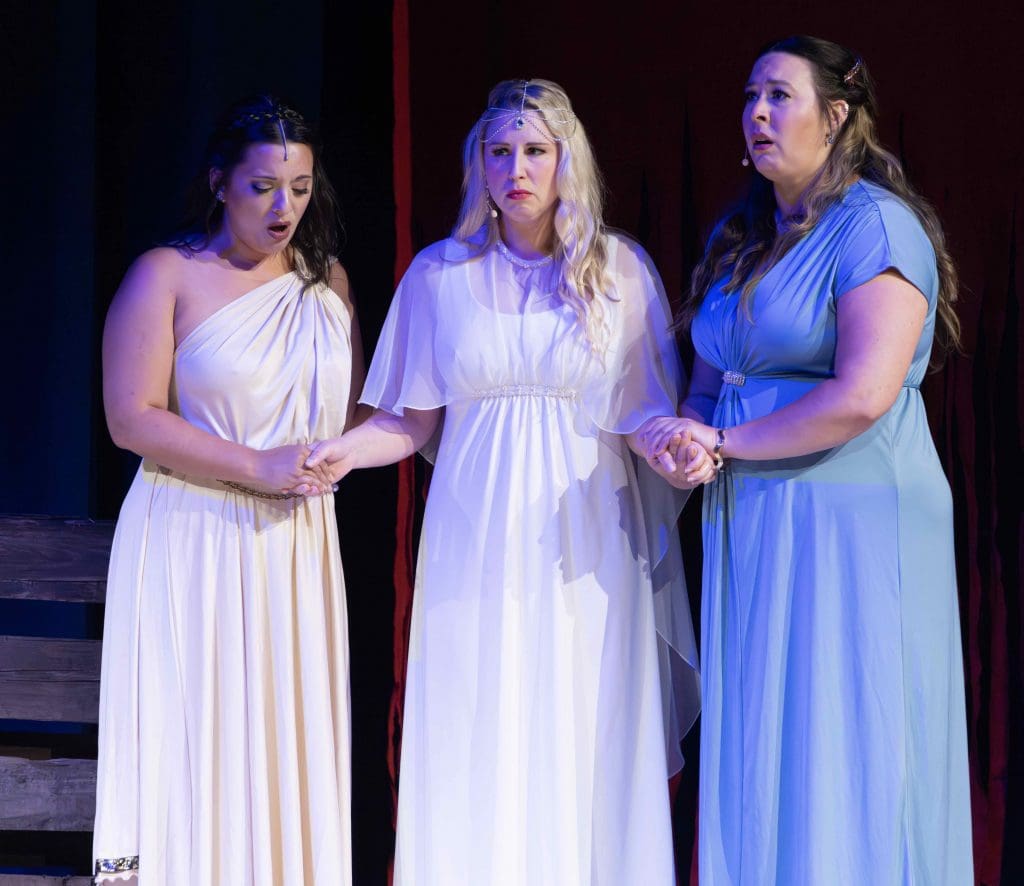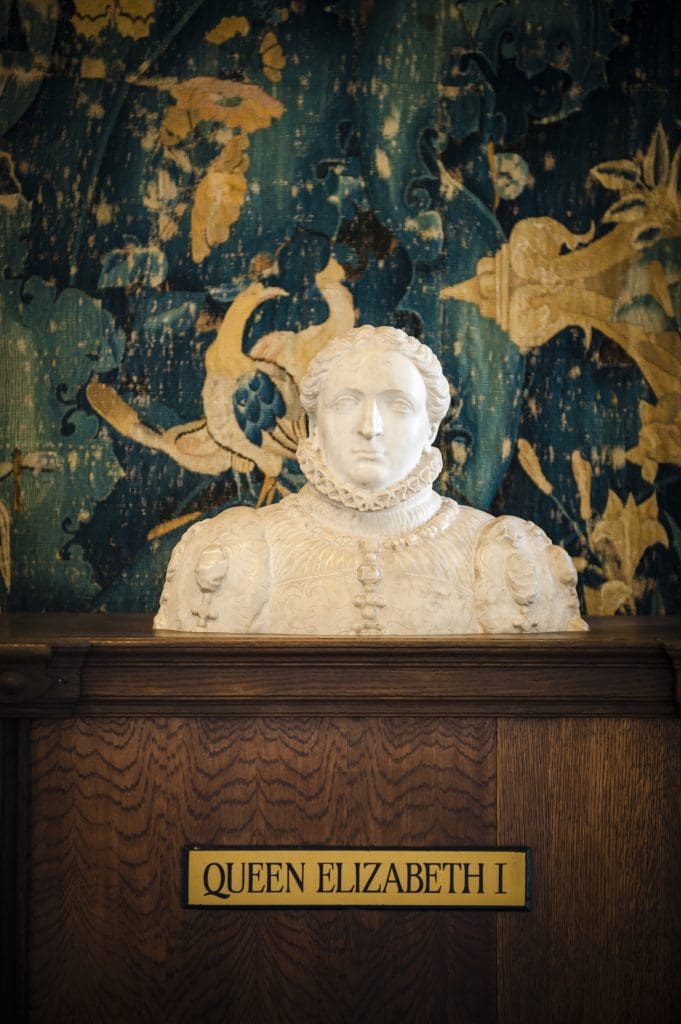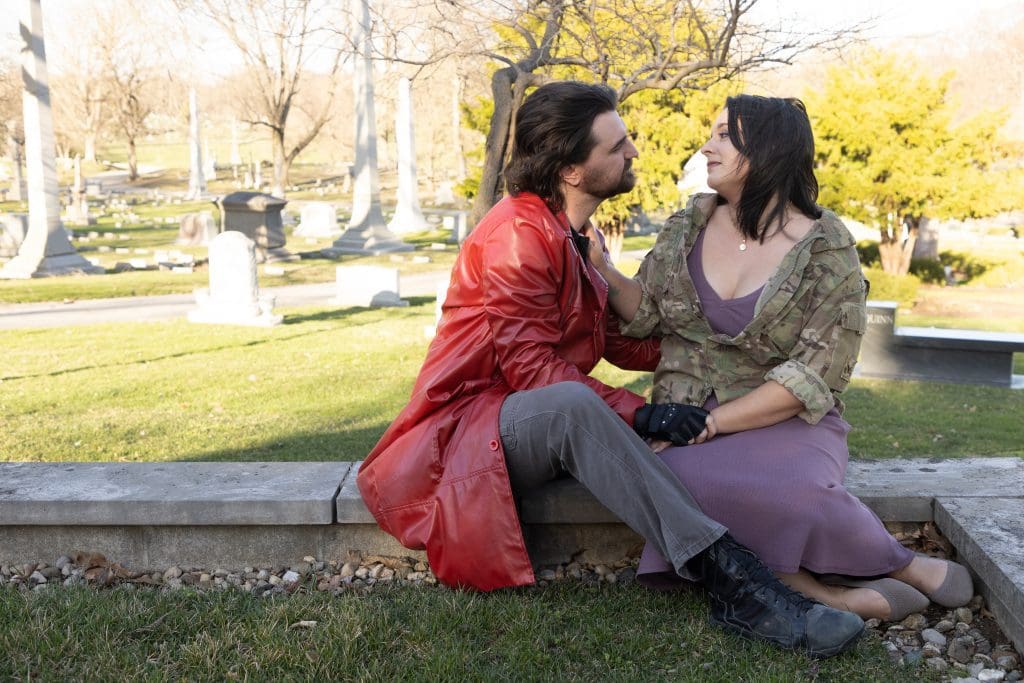


Scholars believe Shakespeare wrote Troilus and Cressida around 1602. The year before, Queen Elizabeth I’s favorite and possible lover, the Earl of Essex, attempted to stage a rebellion against the queen after his failure to put down Irish rebels during the Nine Years’ War. Having betrayed the queen, Essex stood trial and was executed. It’s possible that this real-life soap opera inspired Shakespeare to write a play about a long, seemingly endless war with a pair of lovers – one of whom was betrayed by the other. That’s the plot of Troilus and Cressida.
Set in the seventh year of the Trojan War, Troilus and Cressida reintroduces characters familiar from Greek mythology – Helen of Troy, Achilles, Patroclus, Agamemnon, Menelaus, Hector, and others, but the lovers, Troilus and Cressida, may be somewhat less familiar. Troilus is the youngest son of King Priam of Troy, and Cressida is a Trojan woman under the care of her uncle, Pandarus. Cressida’s father, Calchas, defected to the Greeks, having prophesied that Troy would fall, but he left his daughter behind. Pandarus would like Troilus to take Cressida as his mistress in order to boost his own reputation, and while Cressida has feelings for Troilus, she isn’t happy about being manipulated by her uncle. Meanwhile, the Greeks are desperate for Achilles – their champion fighter – to return to the battle and end this war once and for all.

In contrast to Shakespeare – and other medieval and ancient sources – my version of Troilus and Cressida makes central the perspectives and experiences of women in both their fight for autonomy and their victimization in war. My initial inspiration came from the overturning of Roe v. Wade. In withdrawing a woman’s right to choose her own destiny – not just in when or whether to have children, but in her healthcare, employment, and personal finances – the Supreme Court has acted like the capricious Greek gods who started the Trojan War with their own selfish bickering.
The unwarranted war in Ukraine also has been on my mind while working on Troilus and Cressida. NPR reported in April 2022 that Russian soldiers were raping Ukrainian women during their invasion. Rape has been a tool of war for centuries, and in the Iliad, the dispute between Achilles and Agamemnon that halted Achilles’s participation in the war was over a sex slave, Briseis. The Greeks’ infighting over a conquered woman, when they were in Troy to rescue Helen to begin with, is undeniably ironic. But it also points to the larger problem that is clearly still prevalent today: war gives license to soldiers – mostly men – to execute their individual frustration, fear, and desires on non-combatant civilians, often this manifests through rape. Women are frequently victimized, and their suffering has often been silenced and shamefully packed away.
In watching both of those modern conflicts unfold, I have been disturbed by the reassertion of patriarchal power. Women deserve freedom: freedom of choice, and freedom of safety. We like to pat ourselves on the back in America while condemning other nations for human rights abuses. And yet what started as a theoretical watershed in Enlightenment-era politics — the American Constitution — has never lived up to its own promise. We can either accept that fact, or we can continue to attempt to change it. I choose the latter. This musical is a call to action to restore and support women’s rights by being empathetic to their plight, but it is also a reminder of the intersectionality of oppression. The stoic philosopher and playwright, Seneca, asserted in his play, Agamemnon, “Wherever there is a Helen, there is a Troy.” Injustice for one means total devastation for all.
Lyrics in the play ask, “How is justice possible?” and my answer to that question is “Tell the stories of all our trials.” Without telling these stories of loss, struggle, and oppression, we have no chance at ever reaching the promised land where equity is a real possibility. Empathy is truly our only hope for changing hearts and minds. As the consequences from the end of Roe and the continuation of war in Ukraine are being felt and enumerated every day, we need to heed the warnings of the Trojan War: that domination and hubris will lead to tragedy and that war is not worth its devastating costs.
Join us for Troilus and Cressida: The Musical at Shelton Auditorium, part of Butler Arts and Events Center in Indianapolis, July 13-23. Ticket options: purchase can be made (1) in person at Shelton Auditorium an hour before the show, (2) at Clowes Memorial Hall box office (Wednesday-Friday 10-4) or (3) online.
Share :